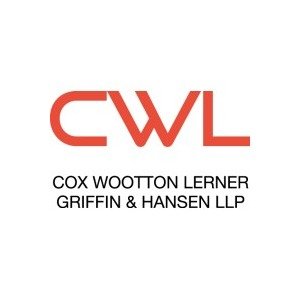Best Land Use & Zoning Lawyers in Los Angeles
Share your needs with us, get contacted by law firms.
Free. Takes 2 min.
Free Guide to Hiring a Real Estate Lawyer
List of the best lawyers in Los Angeles, United States
About Land Use & Zoning Law in Los Angeles, United States:
Land Use & Zoning law in Los Angeles covers regulations defined by the city to control the development and use of property. This law helps to shape the city's infrastructure by determining what types of structures can be built in which locations, and the use of those structures. These laws extend to residential, commercial, and industrial developments, and are essential in city planning, environmental sustainability and preserving the unique character of the LA's diverse communities.
Why You May Need a Lawyer:
In many situations, you might need the help of a lawyer. If you are starting a new construction project, trying to get a variance or exception to zoning laws for an existing property, or if you're facing legal action for supposed non-compliance with land use or zoning regulations, legal assistance can be vital. Lawyers in this field can help you understand the local rules and regulations, prepare necessary documentation, represent you in public hearings or court proceedings, and ensure that your interests are effectively protected.
Local Laws Overview:
The Los Angeles Zoning Code lays out the guidelines for land use and zoning in the city. It has detailed architecture and design standards, density limits, parking requirements, and many other provisions. Major laws include the Baseline Hillside Ordinance, the Baseline Mansionization Ordinance, and Specific Plans. These laws contain detailed requirements in terms of the size and height of buildings, setbacks, grading, landscaping and more. Given the complexity of these local laws, understanding them without legal training can be challenging.
Frequently Asked Questions:
What are the different types of zoning in Los Angeles?
There are several types of zoning including residential, commercial, agricultural, and industrial. Each of these has different subcategories and regulations.
Can I change the zoning of my property?
Yes, you can apply for a zone change or variance, but approval is not guaranteed. It is a complicated process involving public hearings and city approvals.
What happens if I violate zoning regulations?
Violations can result in various penalties, including fines, criminal charges or orders to remove the illegal construction. Long-term consequences can also include not being able to sell the property without first correcting the violations.
Do zoning regulations affect home-based businesses?
Yes, zoning laws can affect home businesses. Restrictions can be placed on the type of business, the amount of space that can be used, the number of employees, and customer traffic.
Can a zoning lawyer help prevent zoning issues before they occur?
Yes, hiring a zoning lawyer during the planning stage of a construction project can prevent many potential issues. They can offer valuable advice on compliance with local laws, which could save time and money in the long run.
Additional Resources:
In addition to seeking professional legal help, the following additional resources can be helpful:
- The Los Angeles Department of City Planning: Offers interactive zoning maps and information about zoning regulations.
- The Office of Zoning Administration: Reviews applications for zoning changes, variances, and other related matters.
Next Steps:
If you think you need legal assistance, your next step should be to consult a lawyer who specializes in Land Use & Zoning law in Los Angeles. Make sure to gather all relevant documents and information to give to your lawyer. The lawyer can review your case, help you understand your rights and obligations, and guide you through the legal processes. Remember, early legal assistance can often prevent more serious legal issues down the line.
Lawzana helps you find the best lawyers and law firms in Los Angeles through a curated and pre-screened list of qualified legal professionals. Our platform offers rankings and detailed profiles of attorneys and law firms, allowing you to compare based on practice areas, including Land Use & Zoning, experience, and client feedback.
Each profile includes a description of the firm's areas of practice, client reviews, team members and partners, year of establishment, spoken languages, office locations, contact information, social media presence, and any published articles or resources. Most firms on our platform speak English and are experienced in both local and international legal matters.
Get a quote from top-rated law firms in Los Angeles, United States — quickly, securely, and without unnecessary hassle.
Disclaimer:
The information provided on this page is for general informational purposes only and does not constitute legal advice. While we strive to ensure the accuracy and relevance of the content, legal information may change over time, and interpretations of the law can vary. You should always consult with a qualified legal professional for advice specific to your situation.
We disclaim all liability for actions taken or not taken based on the content of this page. If you believe any information is incorrect or outdated, please contact us, and we will review and update it where appropriate.

















